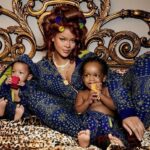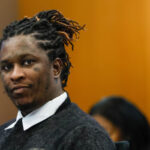To say that Langston Hughes (pictured) was one of the greatest poets of all time is devaluing his contributions and his legacy to the world. Today marks the birth date of one of the greatest writers of all time, as a journalist, an essayist, a short story writer, novelist, playwright and ordinary soul who understood the nuances and beauty of the everyday working man and an extraordinary activist who cried “black is beautiful” in a time when no one believed it.
Most students come across his work – unfortunately only during Black History Month – with two of his most famous poems: “Mother to Son,” where a world weary Mother decries,
“Life ain’t been no crystal stair/It’s had tacks in it/And splinters/And boards torn up,” to her son who she knows will endure the same obstacles.
His other most-celebrated poem, “The Negro Speaks Rivers,”evokes images of ancestors around the world and his own place in it
“I bathed in the Euphrates when dawns were young/I danced in the Nile when I was old.”
An adventurer, he lived and traveled to the Soviet Union, Europe, Paris, West Africa, Japan, China and did extensive work in the Caribbean, among other places. He graduated from Lincoln University and won a Guggenheim Fellowship.
He did all of this without losing his touch or affection for the common man – mostly because he himself was one. He once even worked as a bouncer at a nightclub in Paris.
Born in Missouri, he was bounced between homes in Kansas and Ohio, when his parents separated. His comic character “Jesse B. Semple,” the anchor of his “Simple” poems, was first published in his columns in the Chicago Defender.
Semple was a character that preceded Richard Pryor‘s “Mudbone” character by several decades. Like Mudbone, Semple was an everyman, the “mayor” of a black neighborhood. In Semple, there were aspects of Hughes himself; Hughes was most comfortable in the working-class arena of neighborhoods like Harlem where he was never judged.
And he honored them equally, knowing then and saying it loudly, that black is beautiful in all of its human complexities and frailties: we could be brilliant, we could be dumb, attractive, lazy, funny, hard-working and bombastic.
Watch this video on Langston Hughes and his life’s work:

![Da Brat Marries Judy Dupart on 2.22.22 [PHOTOS]](https://hiphopucit.com/wp-content/uploads/2022/02/1645669184565-440x264.jpeg)
![Drake Reveals Photos of His Son Adonis [Photos]](https://hiphopucit.com/wp-content/uploads/2020/03/Drake-and-on-Adonis-HHUCIT.jpg)

![Megan Thee Stallion – “BOA” [NEW VIDEO]](https://hiphopucit.com/wp-content/uploads/2024/05/Megan_Thee_Stallion___BOA__Official_Video__1_12_screenshot-440x264.jpg)
![Doechii Feat. JT – “Alter Ego” [NEW VIDEO]](https://hiphopucit.com/wp-content/uploads/2024/05/Screenshot-of-Doechii-and-JTs-Al-440x264.png)
![Young Thug Feat. Drake Drop – “Oh U Went” [NEW VIDEO]](https://hiphopucit.com/wp-content/uploads/2023/07/Young-Thug-and-Drake-1014x570-1-440x264.png)






